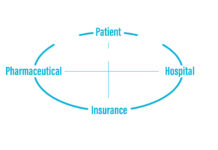More people at this end of the age demographic embracing technology is a great thing, but these new “Boomer Zoomers” weren’t motivated by suddenly having more time to experiment with tech in lockdown. They were motivated by having suddenly discovered that a valuable experience — seeing their loved ones — was no longer available to them. They were in search of a substitute for that experience.
The parallel surge in video calling in the working world during the same time frame has been well-documented and reflects the same reality: Genuine need drives uptake (not to mention innovation and improvement) at a rate that is not always matched simply by a thing being possible.
This means, of course, that end-user technology is only as effective as the quality of the experiences it enables. As businesses look to technology to keep remote and distributed teams “at work,” it is essential that they uncover and understand the valuable experiences those teams depend on to be effective themselves.
Here’s an example. We have a number of customers who develop advanced aerospace technologies. We help them to communicate what their technology does, a process that involves allowing content viewers to interact with 3-D models online. I had thought the sole focus was on communicating complex things in a very precise way. However, I recently discovered that getting potential buyers to connect emotionally with a product at the conceptual stage — enabling them to imagine the product as part of their life — was key to winning opportunities in highly competitive space missions.
How does one person effectively and efficiently show another person how to execute a complex process while remote when they would previously point, talk, gesticulate and demonstrate? How do they ensure the knowledge has been captured when they previously would have been able to see the learning in action?
How do two or more people collaborate to solve a physical problem while apart? What happens to that learning after the fact? How do people get the experience of working together on content for the organization in a distributed environment when they previously did it side by side?
We need to remember that these are things that have value not just for the organization but for the employees themselves; they’re the stuff that makes work enjoyable. It’s essential that we understand the specific working experiences we need to preserve and protect if we are going to use technology to make the future of work not only effective and productive but also rewarding enough for people to want to engage with it.
Reflexive Analysis
As a continually evolving world, what is the future of the workplace? With technological advances, trends come and go, and people get older there is a creeping fear the we will be left in the dust, unskilled and stagnant underneath our more competent AI counterparts. But this doesn’t have to be the case.
Experience-centric design is a way to stay connected as coworkers, friends, and family. It is especially useful in a work context, between customer and client as well as between peers. Things tend to stick more when they are tied to an emotionally charged experience. Not only this, but the desire to share what you’ve learned is a positive side effect of experience-centric design, drawing in more interested parties to offer more positive experiences.
How can we deliver that experience to users of the Hyve-3D, and eventually, create a system of intuitive learning techniques that allows for more people to know how to use the technology?
Hume, Patricia. "The Future Of Work: Focus On The Experiences." Forbes, Integrated Whale Media Investments, 21 Dec. 2021, www.forbes.com/sites/forbestechcouncil/2021/12/27/the-future-of-work-focus-on-the-experiences/?sh=2b0944126446. Accessed 8 Sept. 2022.




